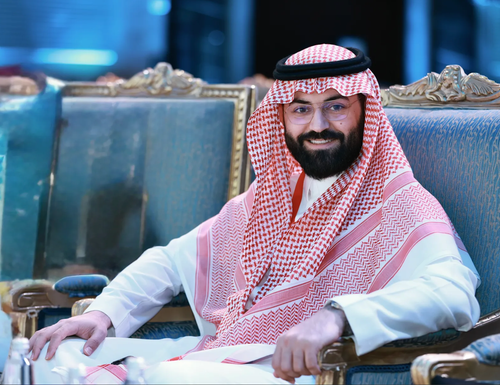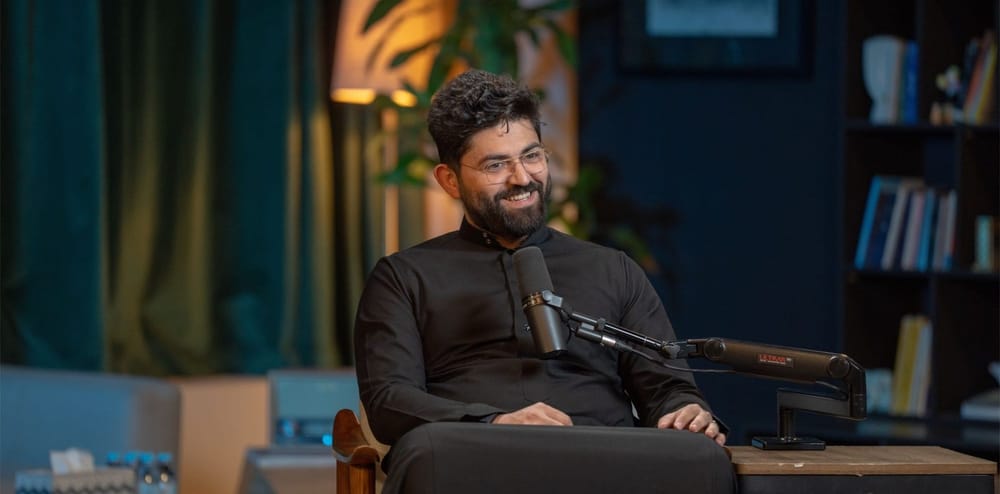For years, most CEOs in Saudi Arabia stayed behind the logo.
The company spoke. The brand spoke. The CEO rarely did.
But today, under Vision 2030, the rules have changed. Investors, partners, regulators, global media, and even young talent want to know the person behind the company:
What do they believe?
How do they lead?
What do they stand for?
That’s where personal branding for CEOs moves from “nice-to-have” to strategic necessity.
What Personal Branding Really Means (and What It Doesn’t)
Personal branding is not about ego, fame, or constant selfies.
For a CEO, personal branding simply means:
Owning your narrative as a leader – so that your values, vision, and voice are communicated clearly and consistently to the people who matter.
It is:
- A strategic filter for what you say and where you show up.
- A bridge between your company’s mission and your own leadership story.
- A trust-building tool in a market that is moving faster than ever.
It is not:
- Competing with your corporate brand.
- Turning into a full-time influencer.
- Posting for the sake of posting.
Done right, your personal brand is the human interface of your company.
Why It Matters So Much in Saudi Arabia Right Now
1. Vision 2030 Needs Visible Leadership
Saudi Arabia is in the middle of a historic transformation. Giga-projects, new sectors, IPOs, and international partnerships are all moving at high speed.
Behind every strategy, there is a human being making decisions.
When a CEO communicates clearly:
- Investors feel more confident.
- International partners understand the direction.
- Local teams feel connected to something bigger than their job description.
In a market like ours, where many sectors are still forming their “global image”, a visible, credible CEO can accelerate trust faster than any campaign.
2. Talent Chooses Leaders, Not Just Companies
The new generation of Saudi talent doesn’t only ask, “What does this company do?”
They also ask, “Who will I be led by?”
A strong CEO personal brand helps you:
- Attract high-caliber Saudi and global talent.
- Retain your best people during difficult phases.
- Signal your culture and leadership style before anyone signs a contract.
In a competitive talent market, your personal brand is effectively an executive-level employer branding tool.
3. If You Don’t Shape the Narrative, Someone Else Will
Silence is also a message.
When a CEO has no presence, three things usually happen:
- The media frames the narrative for them.
- Competitors’ stories fill the gap.
- Rumors carry more weight because there is no direct voice to counter them.
A thoughtful, consistent presence on platforms like LinkedIn, conferences, interviews, and op-eds gives you something very valuable: the right to clarify, contextualize, and lead the conversation when it matters.
The Business Case: How a CEO’s Brand Drives Company Value
A well-managed personal brand for a CEO can:
- Increase trust in the company
Clear leadership communication reduces perceived risk in the eyes of investors, partners, and regulators. - Support fundraising and IPO narratives
In equity stories, the “management team” section is not a formality – it’s a key factor. A well-positioned CEO brand strengthens the overall equity narrative. - Boost commercial and B2B relationships
When you regularly share insights and direction, you become a reference point in your sector. That pulls in opportunities. - Strengthen crisis resilience
In difficult moments, the market listens more carefully if there is a known, credible human voice at the top.
In short: a strong CEO brand is not separate from enterprise value – it is part of it.
What a Strong CEO Personal Brand Looks Like (for Saudi Leaders)
Personal branding for a Saudi CEO has its own context and sensitivities. It should feel authentic, culturally grounded, and aligned with national direction.
Here are the key pillars:
1. Authenticity, Not Performance
People can feel the difference between a staged persona and a real leader.
A strong personal brand shows:
- Your real leadership philosophy.
- Your convictions about your sector and its future.
- Your human side, without turning your life into reality TV.
You do not need to share everything. You need to share what is relevant, consistently and honestly.
2. Alignment With Company Purpose and Vision 2030
Your personal brand should not compete with your company’s brand. It should amplify it.
Ask yourself:
- How does my personal story connect to the mission of this company?
- How does the work we’re doing tie into Vision 2030 and the broader national agenda?
- What perspective can I offer that my corporate channels don’t?
When your personal messaging and your company’s messaging move in the same direction, you create momentum instead of noise.
3. Thought Leadership, Not Self-Promotion
Your strongest content is not about you – it is about:
- Lessons from building in your sector.
- Insights on trends, risks, and opportunities.
- Practical advice for founders, SMEs, or young professionals.
- Stories of people and teams inside your organization.
Think of your personal brand as a public masterclass in leadership and strategy, delivered over months and years.
4. Strategic Visibility
You don’t need to be on every platform.
For most Saudi CEOs, a smart mix looks like:
- LinkedIn – primary home for thought leadership, company milestones, and talent-related communication.
- Panels and conferences – where your name and voice are associated with the right topics.
- Selective media – interviews or op-eds with outlets that reach your real stakeholders.
The goal is not volume. The goal is to be visible in the right places, for the right reasons.
How a Saudi CEO Can Start Building a Personal Brand – Safely and Strategically
You don’t need to overhaul your life to start. Begin with a simple, structured approach:
Step 1: Clarify Your Narrative
Answer (in writing):
- What do you believe about your sector?
- What problem are you trying to solve in Saudi / the region?
- What kind of culture are you building inside your organization?
- What do you want to be known for in 10 years?
These answers become the core of your personal brand.
Step 2: Audit Your Current Presence
- Google your name in Arabic and English.
- Review your existing LinkedIn profile and any interviews.
- Ask: “If someone only saw this, what picture would they get of me?”
Identify the gaps between who you really are and what appears online.
Step 3: Choose 2–3 Content Themes
Pick themes that connect you, your company, and the Kingdom’s direction, for example:
- “Future of tourism / fintech / logistics in Saudi Arabia”
- “Building Saudi talent and leadership pipelines”
- “Lessons from leading through transformation and change”
Stay consistent with these themes so your audience knows why they should follow you.
Step 4: Build a Light but Consistent Rhythm
You don’t need to post daily.
Even 2–4 meaningful touchpoints per month can shape a strong perception over time:
- One LinkedIn post sharing a key learning or principle.
- One reflection on a company milestone, giving credit to teams.
- One appearance or comment at an event, captured and shared.
Consistency builds trust. Silence creates guessing.
Step 5: Get Support – But Keep the Voice Yours
You can involve:
- A content strategist to help structure your narrative.
- A writer to turn your ideas into polished posts.
- A team member to coordinate with corporate comms and PR.
But one thing should remain non-negotiable:
The ideas, tone, and values must be yours.
A scripted persona will eventually crack. A clear, honest voice will grow stronger with time.
A Final Question for Every Saudi CEO
In a decade, when people look back at this period of Saudi Arabia’s transformation, they will remember projects, investments, and milestones.
But they will also remember the leaders who stood up, spoke clearly, and carried responsibility with courage and humility.
So the question is simple:
Will your story be told by others – or will you take the lead in telling it yourself, with intention and integrity?
Your personal brand is not a side project.
For a CEO in today’s Saudi Arabia, it is part of the job description.





